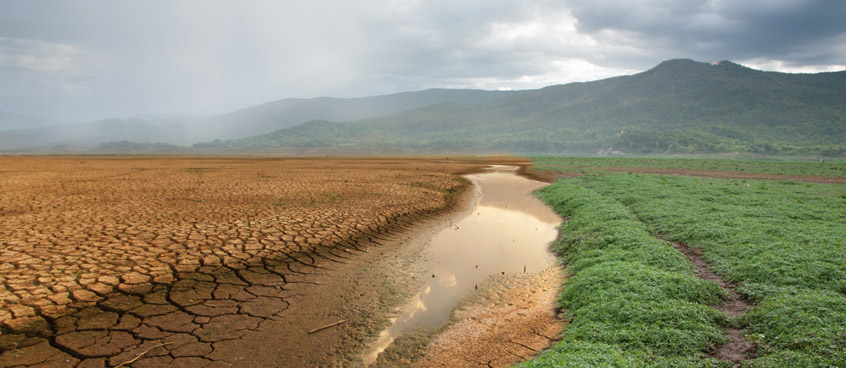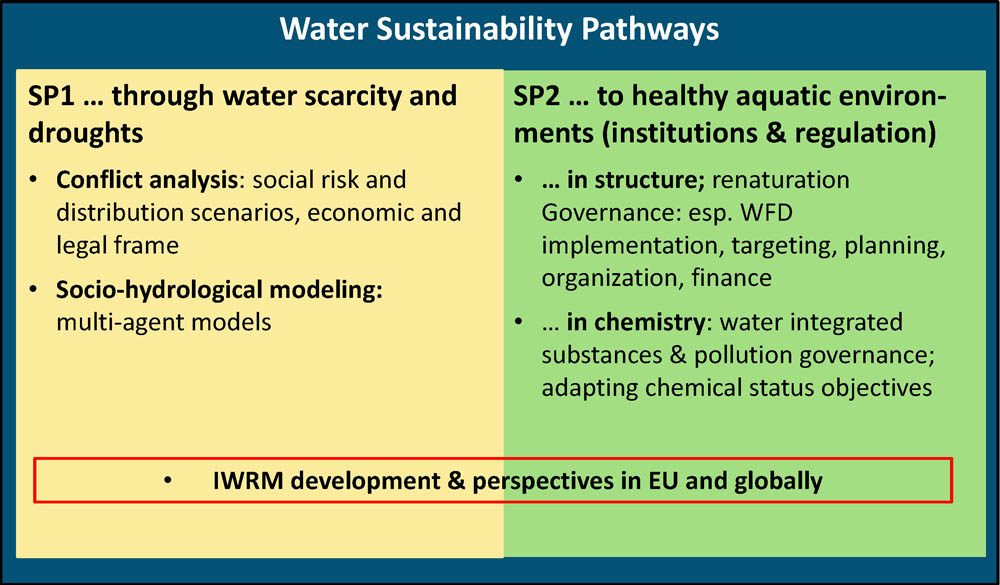
Water sustainability pathways:
Transformation towards a sustainable water resource management
Platform Project − PP 6.3
Water is an indispensable resource for human life and natural ecosystems, yet freshwater systems are critically endangered by human activities and stand to be further affected by climate change. Growing pressures form droughts, agriculture, urban demands, and pollutants on the one hand, and raised ambitions to restore aquatic ecosystems, on the other hand, necessitate a fundamental shift in water management in Europe and beyond − a “water transformation”.
By developing out Platform Project "Water Sustainability Pathways" we aim to facilitate the attainment and further development of political transformation targets as previously formulated but repeatedly missed, such as the UN's Sustainable Development Goals (SDG) and the environmental objectives of the European Water Framework Directive (WFD). In this regard, attention will be paid to: (1) the transition to sustainable water resources management which are resilient to water scarcity and droughts, (2) the institutional framework for the restoration of depleted water ecosystems, and (3) the rethinking of water governance models aiming to meet the societal needs and agreed political goals.
We will use our unique interdisciplinary competence and long-standing experience to unlock the major societal barriers that hinder or delay such transitions and to develop solutions on how to promote pathways to a sustainable water resources management. In doing so, we aspire to be at the forefront of scientific support for the German Sustainability Strategies as well as the National Water Strategy, the implementation of the WFD, and the further development of global water management regimes.
Subproject 1: Water Scarce Futures: Impacts, conflicts and transformative pathways
We assess current and future impacts of water scarcity in Germany and investigate possible mitigation solutions. The impact assessment will be done by developing a coupled hydro-economic multi-agent system model (MAS) and by using novel text mining tools on news and policy reports. The investigation of potential solutions will be accomplished by testing different mitigation options using the hydro-economic MAS model as well as by co-developing vision-based scenarios about potential measures and conflicts.
Subproject 2: Transformation of the political and legal framework for sustainable aquatic ecosystems
We develop proposals for transformative water governance. To this end, the environmental objectives and their implementation barriers will be examined from a legal, economic and political science perspective. At a higher level, proposals will be made for the division of responsibilities and the organization of political and administrative decision-making processes, but concrete proposals will also developed for the design of regulations and policy instruments.

Subprojects
Subproject 1: Water Scarce Futures: Impacts, conflicts and transformative pathways
Subproject 2: Transformation of the political and legal framework for sustainable aquatic ecosystems
